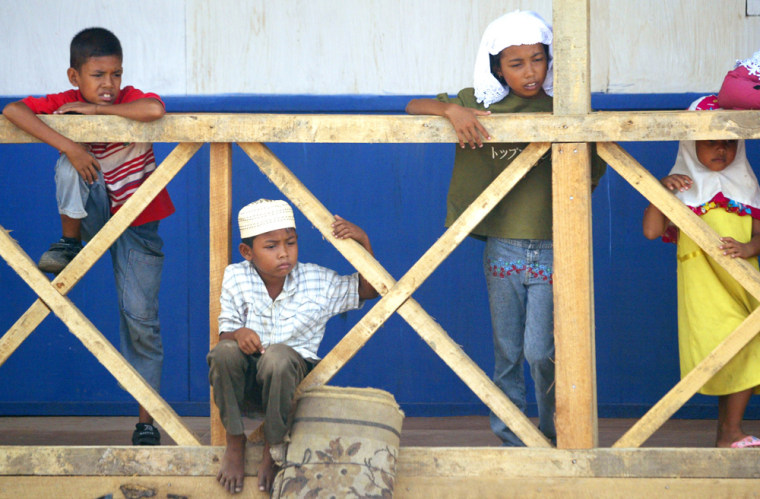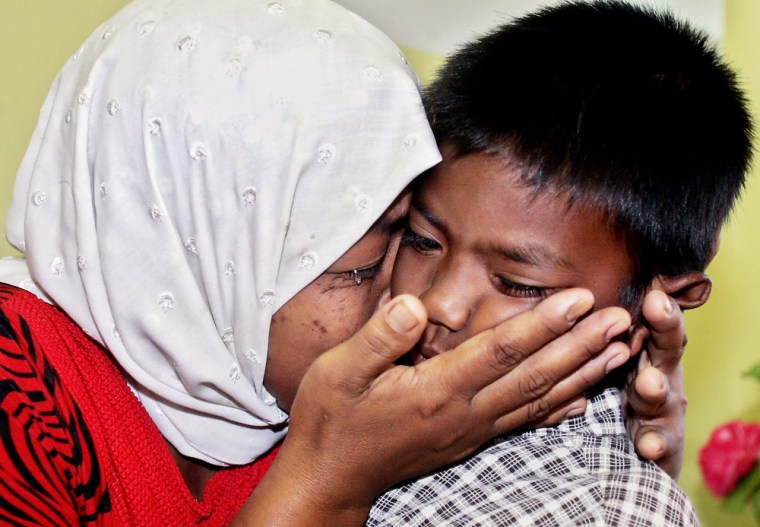As many as 10,000 children in Indonesia’s tsunami-devastated Aceh province may be seeking lost parents, the United Nations and other agencies said on Tuesday.
That figure represents about 2.5 percent of the 400,000 people displaced on the northern end of Sumatra island by the giant waves, triggered by an earthquake on Dec. 26.
But the United Nations Children’s Fund (UNICEF) said the number of youngsters without any surviving relatives or adult support was much lower than initially feared.
“It is really, really difficult actually. We can only estimate,” UNICEF child protection officer Frederic Sizaret said of the number of children who are unaccompanied or separated from parents.
A social affairs ministry statement on Tuesday put the figure at 10,000, while UNICEF said its estimate was up to 8,000.
More than seven weeks after the tsunami left more than 240,000 Acehnese dead or missing, UNICEF and Indonesian officials on Tuesday were able to reunite one nine-year-old boy with his distressed parents.
“My heart has swollen crying everyday. I told myself that my son would come home, and I prayed to Allah,” said Hayatun Nafis, the boy’s mother.
Officials said the boy, Iwan, recognized his flattened house during a trip around the provincial capital Banda Aceh on Sunday.
Enormous impact on children
Sizaret said the UNICEF figure for children seeking parents was based on a surveyed sample of refugees and included unaccompanied youngsters with no adult supervision and those fostered with extended family or people from their community.

Of the 700 children registered as having lost their parents, 50-60 were completely alone and without any support from an adult they knew before the disaster.
More than 170 children had been entered into an inter-agency database so far and were in the process of finding lost parents.
“The good thing here is family is generally very extended, so you always have a cousin or a relative somewhere who can be traced ... So, I’m confident most children will eventually find some relatives,” said Sizaret.
The tsunami had an enormous impact on children, with UNICEF estimating that up to half of all the victims were youngsters, a statement from the agency said.
The social affairs ministry statement on Tuesday said a priority was being put on supporting families who had taken in children and that adoption or institutional care, such as orphanages, would be considered only as a last resort.
“Principally, the government wants children to grow up with the provision of family-based care,” said Haniff Asmara, head of the social bureau at the ministry.
Adults seeking lost children through official channels are shown five pictures of youngsters. If they correctly identify the missing child additional questions are asked, such as the child’s favorite food, the names of school friends and what they were last seen wearing.
The child is also asked questions and shown pictures of adults.
To prevent the trafficking of children, the government has put a moratorium on the adoption of children from Aceh. Children under the age of 16 cannot leave the country without a parent.
